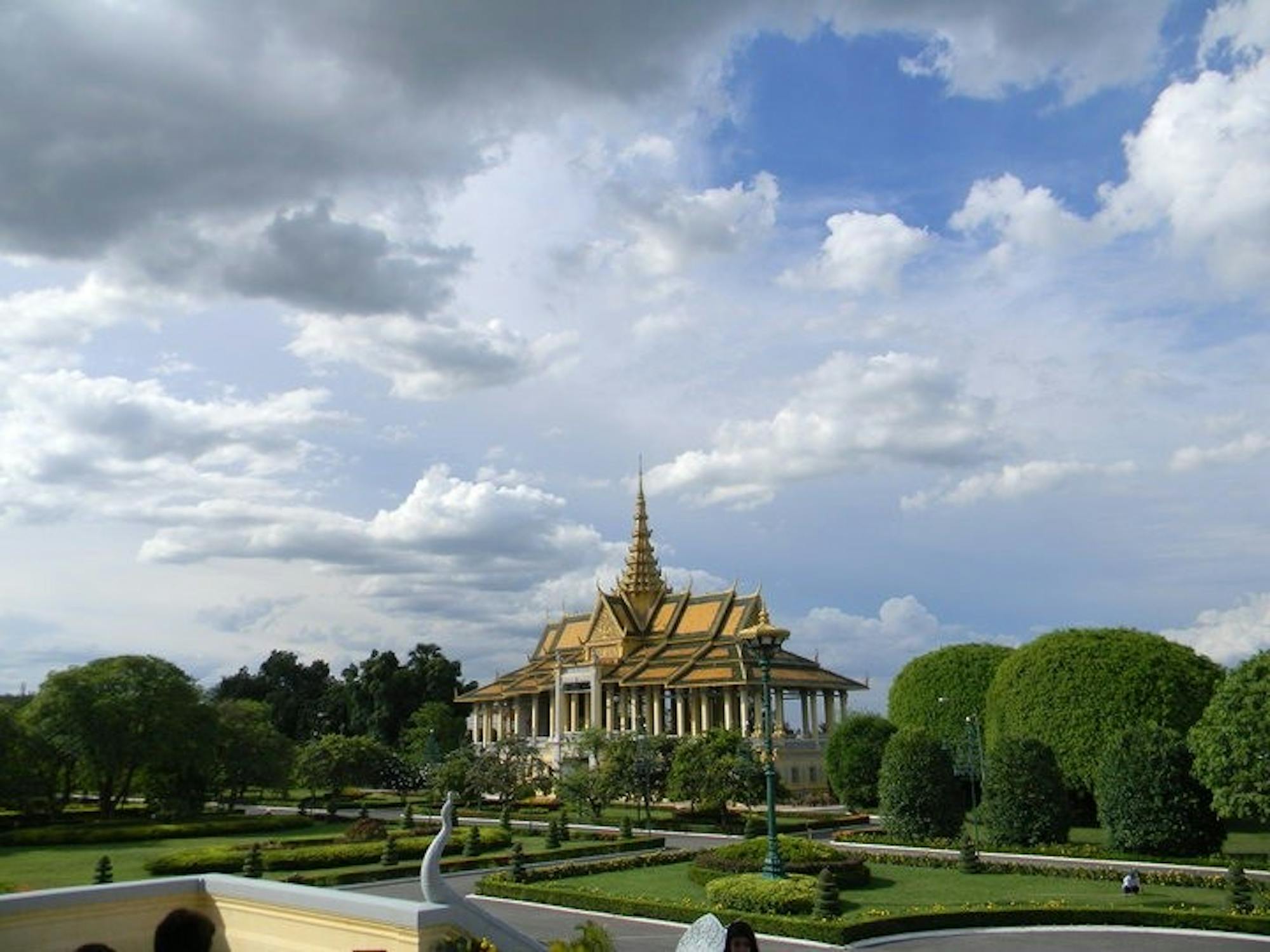“Why Vietnam?” was the question I received every time I would bring up my travel plans for last summer.
And, quite honestly, each time I’d answer, “Because it’s on the tour I’m taking.” Namely, Eastern Michigan University’s Asian Cultural History Tour.
EMU has been hosting its unique, faculty-led Cultural History tours since the ‘70s, starting with European tours led by Dr. Emmanuel Fenz. The Asian tour was added in 1994.
This year’s tour, from May 1-24, will be traveling through Vietnam, Cambodia and Thailand, and will feature EMU professors Gordon Knutson and Jim Egge teaching history, political science and religious studies courses.
“It’s going to be cool to have someone from campus [on the tour],” said Jeremy Baldwin, the Academic Programs Abroad travel manager who will be on the tour.
The tour will visit cities like Hanoi, Ho Chi Mihn city, Siem Riep – home of Angkor Wat – and Bangkok.
What makes the tour unique from other study abroad opportunities is “it’s not like going to a school in Asia, sitting in a class, learning about it,” Baldwin said. “Class can spontaneously break out.”
And Baldwin means that literally. On my trip we had lectures in archeological sites, in museums, in the hotel lobby and even clustered on the sidewalk. The program includes hiring local guides to escort the program and provide an in-depth understanding of locations such as the Ankor temple complexes in Cambodia and the De-Militarized Zone in Vietnam.
“You’re going to get history, you’re going to get political science, religion,” Baldwin said, and that’s only from the professors.
Besides providing visits to historical sites, Baldwin said the program aims “to give you a wider view of the people.”
And the tour does, providing access to cultural events like dance programs and music performances, — not to mention cuisine.
“If you haven’t tasted tarantula, you’re missing out,” said Jeffrey Chicoine, an International Affairs student who went on the trip last year.
But perhaps more importantly, it gives students the chance to interact with several different peoples in “up-and-coming places,” according to Baldwin.
Thailand has already made a place in the international economy, with 2010 growth the BBC said “exceeded some analyst’s predictions,” despite some domestic problems. Vietnam and Cambodia are also building places for themselves, particularly in textile industries.
“Traveling to Europe is fun, but I think you learn more traveling in the developing world,” Chicoine said. “You really start to think about yourself as a global citizen.”
Besides exposure to growing places of the world, these tours can provide profoundly shaping experiences for students.
Some of the seven members of my group, on a visit to a Khmer Rouge prison, got to meet one of the four surviving inmates. While the man didn’t speak English, his interaction with the museum exhibits and hand symbols communicated some of the horrors he had survived.
In addition to facing some hard history, the tour also makes room for relaxing moments.
One of the favorite events for many on my tour was the overnight tour of Halong Bay, a location defined by its stunning rock formations, spent swimming, kayaking, and enjoying the bay’s seafood.
While the world is putting increasing amounts of information and visuals of such sites online, situations like the aforementioned prove what Baldwin said: “There is a worth to actually being there,” providing experiences that “will be invaluable.”
“You have to be ready for a bit of adventure,” he added, as the tours often have to be flexible with plans, but “it becomes a positive experience for almost everyone.”
As it did for me. Now when people ask, “Why Vietnam?” I can cite many reasons. … a rich history of endurance, an absolutely beautiful country and
an amazingly tolerant and accepting people, to name a few.
“Vietnam is one of the most beautiful countries I’ve been in and the people are incredibly vibrant,” Chicoine said. “I think because of our shared
history, people in the US don’t realize what a wonderful place it is.”
As for this year’s program?
“We’re always looking for people,” Baldwin said.
The final date for applications for the program is March 15. One of the advantages EMU students have on these tours is a reduced price from the general fee. This program fee, which includes everything but airfare to Vietnam and food, is set at $2,595. Regular financial aid can apply to this
cost.
In addition, there is a scholarship commemorating the Cultural History Tour’s founder, Dr. Fenz, which goes specifically to students participating in a CHT.










